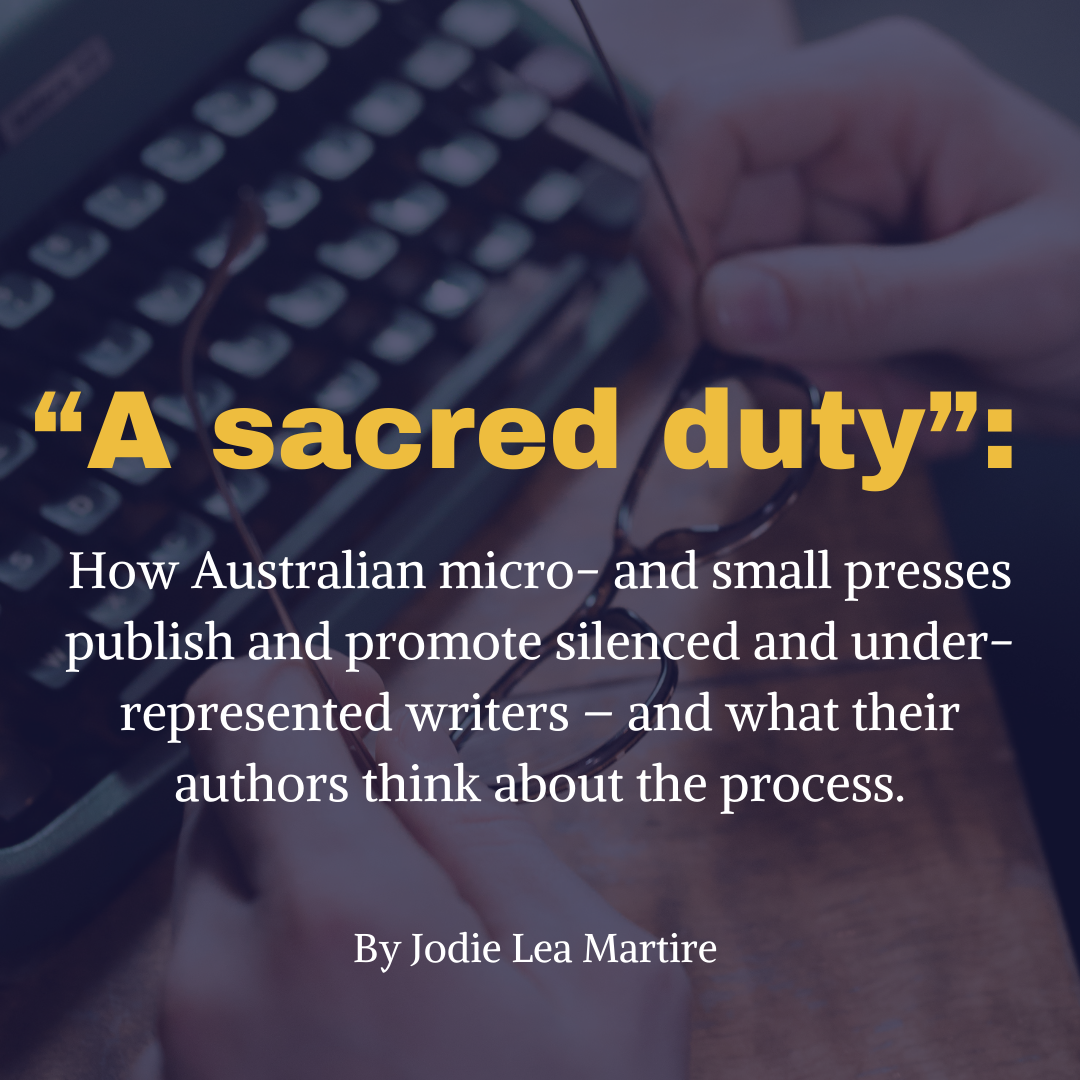Introducing industry research: “A sacred duty” by Jodie Lea Martire Part 1
In her Masters research thesis, Jodie Lea Martire explores the strategies small presses have long been using to diversify the publishing industry, turning this into the basis of a roadmap for the broader Australian publishing industry to follow in their footsteps.
The following extract provides an insight into the research and results Martire has discovered with the full article available for download.
“A sacred duty”: How Australian micro- and small presses publish and promote silenced and under-represented writers – and what their authors think about the process.
Part 1: The strategies of small presses and their authors’ feedback on those strategies.
Micro- and small-press publishing sits at the intersection of literature, art and politics. It is acclaimed for championing unheard voices, acting as “research and development” for new writers, styles and writing communities, and serving as a vital component in a very complex publishing ecosystem.
Australia’s book industry is very slowly coming to the realisation that it has a responsibility to publish works and authors who represent the full range of Australian lives, who express different experiences, backgrounds and knowledges. What we shouldn’t forget is that micro- and small presses (MSPs) have long been making this a reality. Perhaps instead of the industry attempting to reinvent the wheel in publishing “diversity”, it could learn from the decades-long experience of successful small presses who have routinely elevated the creations of neglected, silenced and unheard voices.
This was the purpose behind my master’s research, which I completed in 2020. I wanted to learn from experienced small presses and share their knowledge and practices with the wider Australian publishing industry. I completed my thesis on the strategies that small-press publishers use to raise and amplify the voices of traditionally excluded authors. My research also aimed to learn what authors published by small presses thought of their publishers’ performance, and to discover their suggestions for the industry. Writers of difference from many backgrounds have frequently (and fairly) lambasted their systematic and systemic exclusion from publishing, so I wanted to learn the details of their ideas around specific publishing practices—and thus offer something of a roadmap to an industry which says it is now listening to “diverse” authors.
The two publishing houses I worked with in my project were Spinifex Press and Wild Dingo Press (WDP), which both have long histories of publishing and publicising under-represented writers. Spinifex has just celebrated 30 years in business and Wild Dingo has been operating for over a decade. I conduced nine interviews with publishers and staff of both presses and with two writers published by each press. Authors’ contributions were provided anonymously. The research was framed by appropriate ethics approvals from the University of Queensland.
In this collaboration with the Small Press Network, I am beyond delighted to share the results of my research in the knowledge that it provides a range of potential practices for the Australian publishing industry. It should be especially useful for publishers and presses who strive to increase the range, variety and volume of writers whose voices we have missed out on for too long.
This instalment of the SPN publication, the first of four, collates the publishing strategies used by publishers and their authors responses to them.

